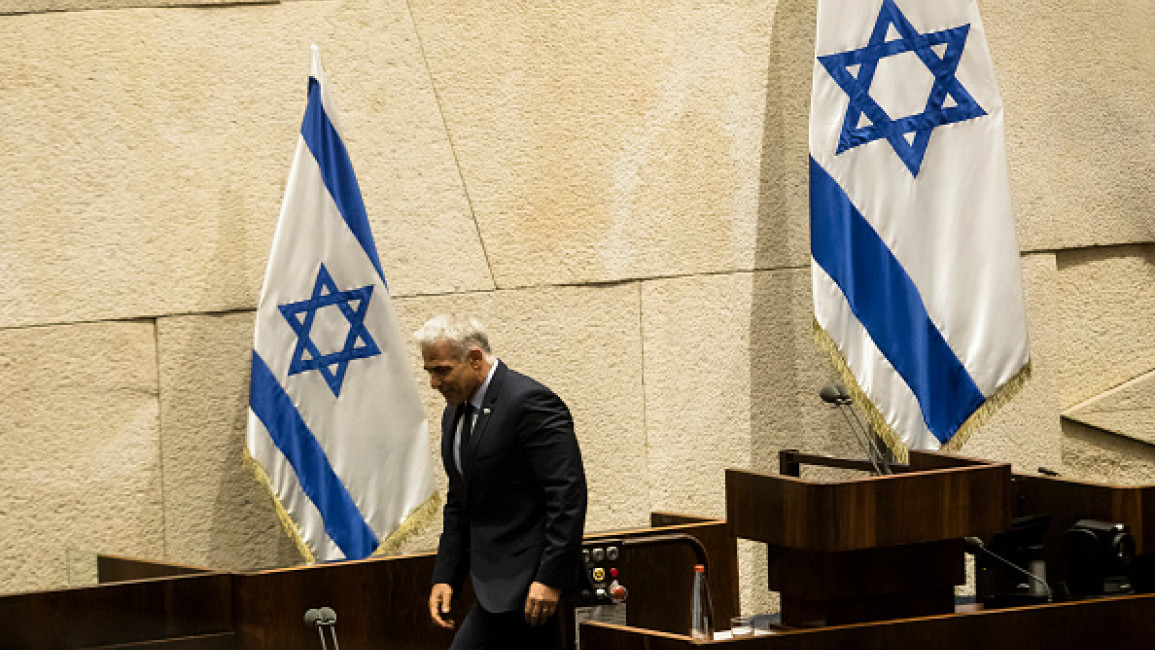Israel passes bill dissolving Knesset, edges closer to holding new elections
Israeli lawmakers on Tuesday unanimously approved a bill to dissolve parliament, a key legislative step that pushes the country closer towards its fifth election in less than four years.
Members of Prime Minister Naftali Bennett's outgoing coalition and the opposition led by ex-premier Benjamin Netanyahu have been sparring in Israel's parliament, the Knesset, since last week over a dissolution bill.
The coalition said it wanted quick approval of the bill after Bennett announced last week that his year-old, ideologically divided, eight-party alliance was no longer tenable.
But Netanyahu and his allies had been holding talks seeking to form a new Netanyahu-led government within the current parliament, which would have averted new elections.
The sides have traded legislative jabs but finally agreed late on Monday to advance a bill that would be finalised as law by the end of Wednesday.
The opposition's readiness to dissolve parliament suggested Netanyahu's efforts to form a new government had stalled.
Early Tuesday, the Knesset house committee approved the bill. It was then brought to the plenum for its first reading, which it passed 53-0.
According to the bill, parliament would dissolve, with new elections to be held on October 25 or November 1, with the date to be set after further negotiations.
The bill must then be approved in two further full Knesset votes.
Lawmakers were expected to approve a raft of separate consensus legislation on Tuesday and Wednesday before a final vote on the dissolution bill.
At midnight after parliament dissolves, Bennett will hand power to Foreign Minister Yair Lapid, in accordance with the power-sharing deal they agreed following inconclusive elections last year.
The Bennett coalition, a motley alliance of far-right nationalists, secular hawks, centrists, leftists and Palestinian parties, was imperilled by its ideological divides from its outset.
The final straw, according to the premier, was a failure to renew a measure upholding Israeli law in illegal settlements in the occupied West Bank, which has been in force since Israel's 1967 occupation of the land.
The law ensures that illegal settlers receive the same rights as Israeli citizens in Israel, and automatically ratified by parliament every five years.
Palestinians live under an apartheid system where they are subject to military law and subject to assaults and killings from Israeli settlers and soldiers.
Bennett, the former head of a settler lobby group, said the measure's expiration on 30 June would have brought security risks and "constitutional chaos".
Dissolving parliament before the expiration date means the occupied West Bank law will remain in force until a new government takes office.
In what might have been his last public event as premier, Bennett said his time in charge had been "amazing" for Israel after "tumultuous years of elections".
"I think in this one year we did about 10 years of work, and I'm pretty darn happy about that," he told Tel Aviv University's Cyber Week conference.
Bennett, a religious nationalist, said his alliance with the centrist Lapid - a man he once promised never to partner with - brought stability after years of gridlock.
"I'm not happy about the elections; it's certainly not good for Israel, but it is what it is," he said.



